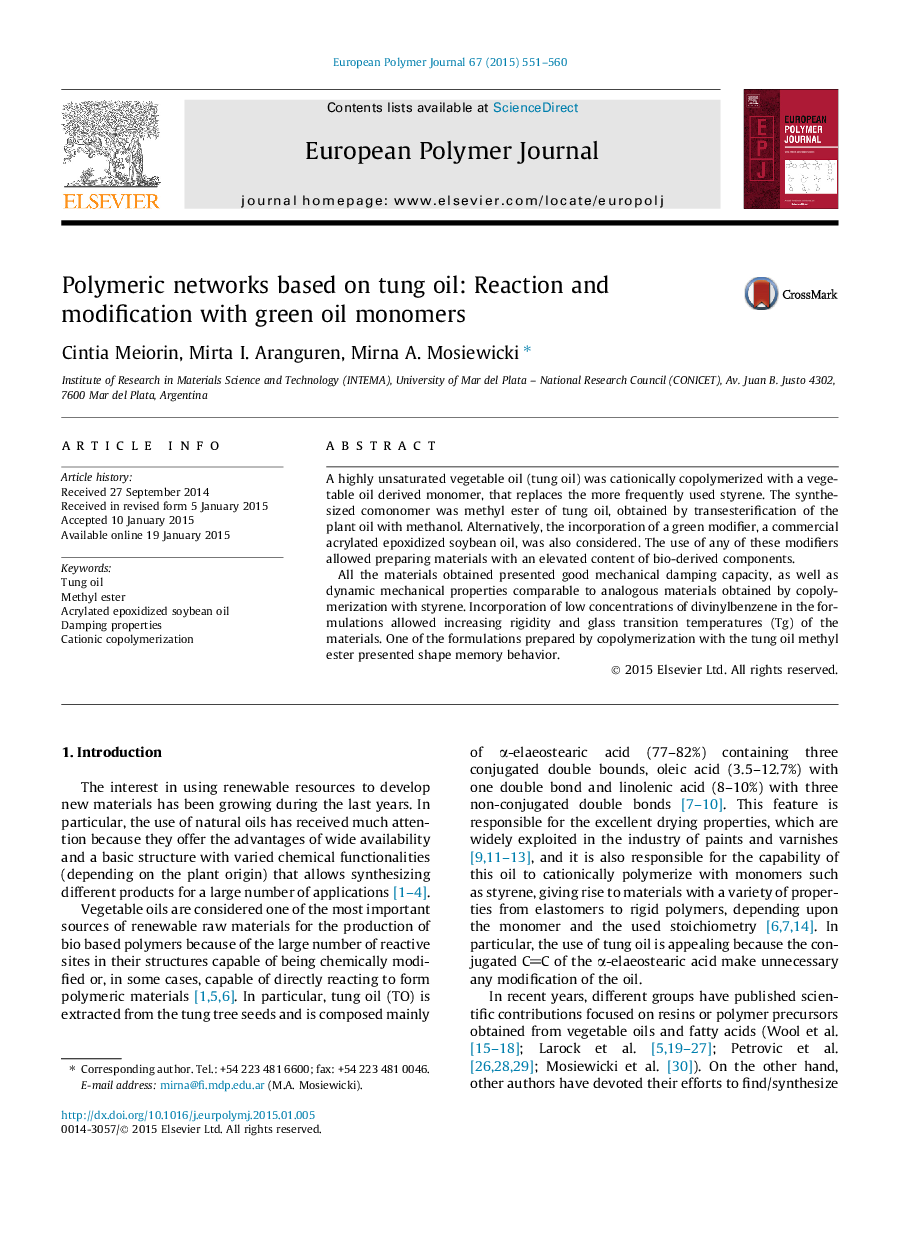| Article ID | Journal | Published Year | Pages | File Type |
|---|---|---|---|---|
| 1400418 | European Polymer Journal | 2015 | 10 Pages |
•The cationic polymerization of tung oil generates thermoset polymers.•The use of biomonomers generated similar properties to styrene–oil copolymers.•Some of the copolymer composition displays shape memory behavior.
A highly unsaturated vegetable oil (tung oil) was cationically copolymerized with a vegetable oil derived monomer, that replaces the more frequently used styrene. The synthesized comonomer was methyl ester of tung oil, obtained by transesterification of the plant oil with methanol. Alternatively, the incorporation of a green modifier, a commercial acrylated epoxidized soybean oil, was also considered. The use of any of these modifiers allowed preparing materials with an elevated content of bio-derived components.All the materials obtained presented good mechanical damping capacity, as well as dynamic mechanical properties comparable to analogous materials obtained by copolymerization with styrene. Incorporation of low concentrations of divinylbenzene in the formulations allowed increasing rigidity and glass transition temperatures (Tg) of the materials. One of the formulations prepared by copolymerization with the tung oil methyl ester presented shape memory behavior.
Graphical abstractFigure optionsDownload full-size imageDownload as PowerPoint slide
